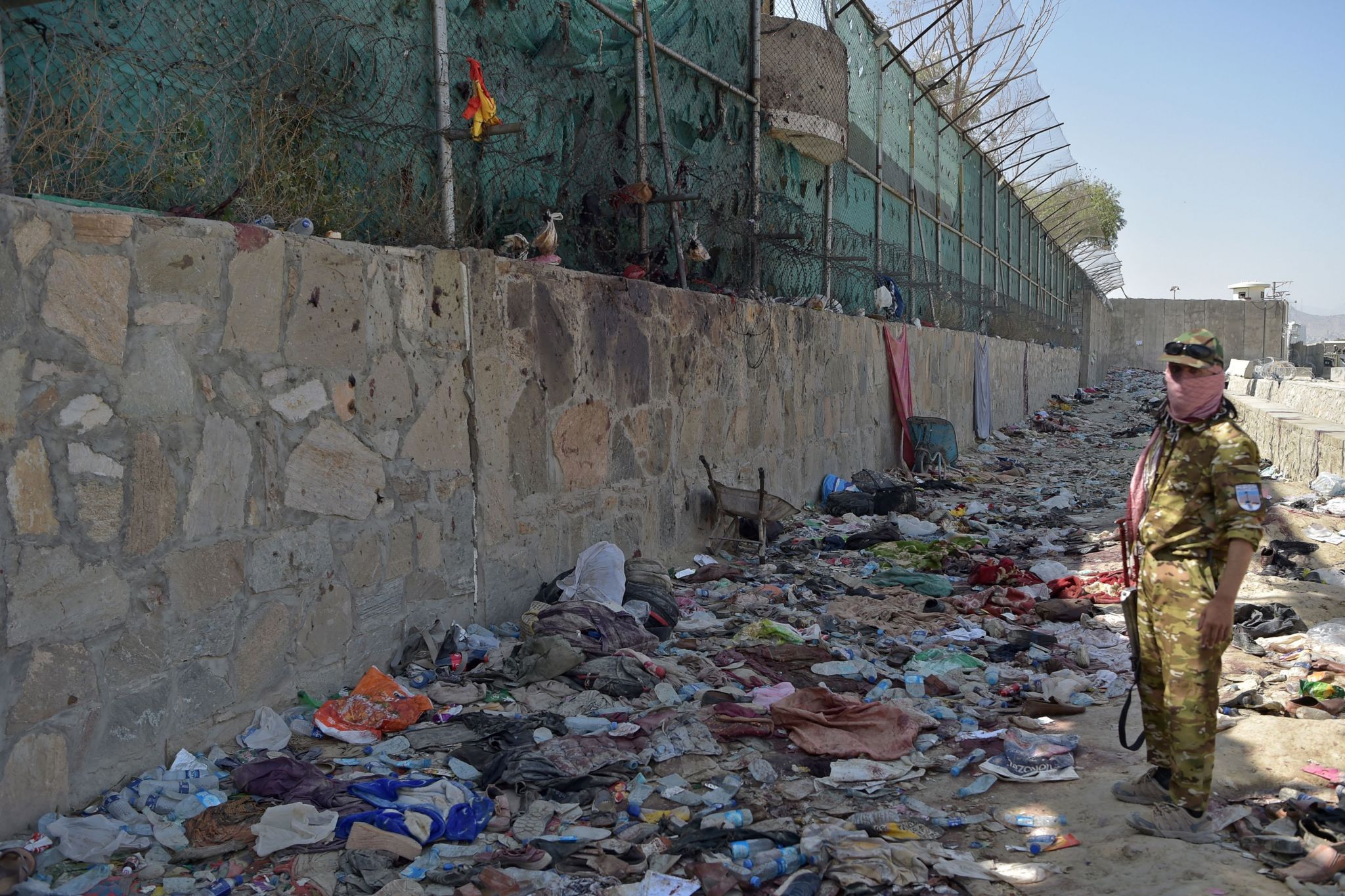“Bodies would start piling up” if more people do not get vaccinated, a senior doctor has warned.
Dr George Gardiner said “they would have been piling up already without the vaccine”.
“We are now facing winter pressures, Respiratory Syncytial Virus for children, the next wave of flu and Covid. We cannot do all,” he added.
BBC News NI was given exclusive access inside Belfast City Hospital’s Intensive Care Unit (ICU).
Seven Covid patients were battling the virus – six of the men and women in their 20s, 40s and early 60s were unvaccinated.
One of them was double-jabbed.
“Without the vaccine we would have been on our knees weeks ago,” Dr Gardiner said.
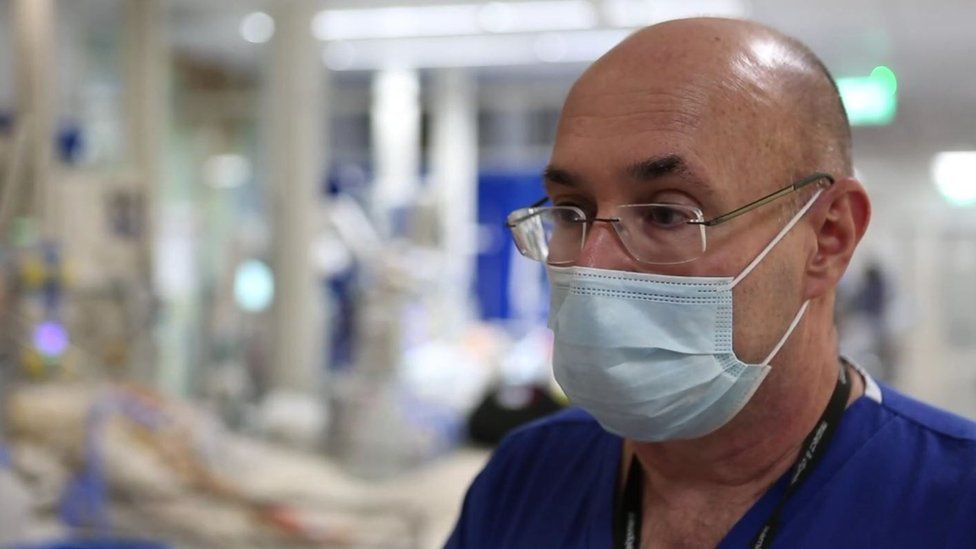
“We would have cancelled surgery, like we had to the last time.
“We are now facing winter pressures, Respiratory Syncytial Virus (RSV) for children, the next wave of flu and a wave of Covid. We cannot do all.
“The bodies would start piling up, and they’d be piling up already without the vaccine.”
Dr Gardiner has called for an end to “tribal politics” in Northern Ireland to allow transformation of the health service, so that cancer and coronavirus can be tackled in tandem.
The director of intensive care at Belfast City Hospital said the system was currently “one step from chaos” and warned hospitals will not cope with winter if Covid numbers continue to rise.
Northern Ireland has the highest infection rate of anywhere in the UK, but vaccine uptake is the lowest.
A total of 2,465,965 jabs have been given out in Northern Ireland, with 87.5% of people now having had a jab.
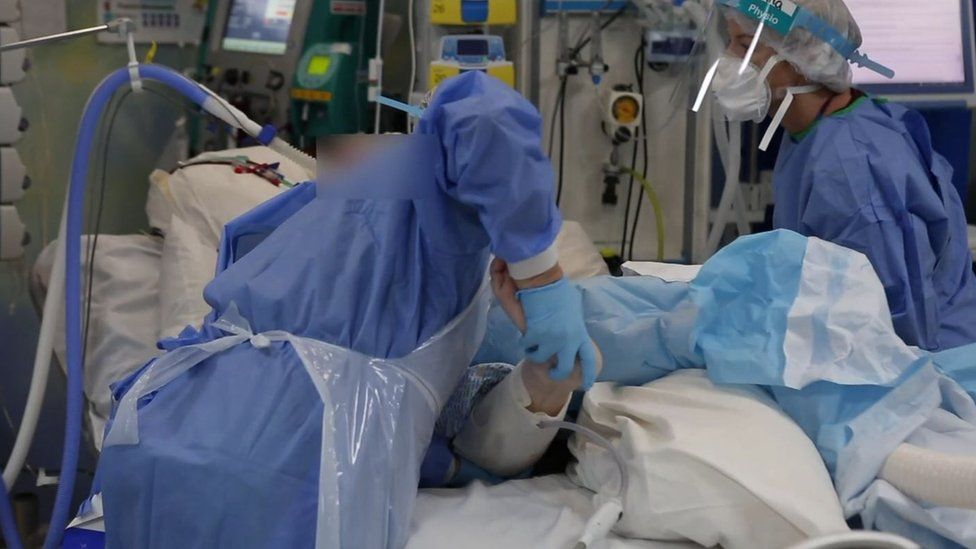
“We need to get everyone who can take a vaccine to take it now before the winter pressures are on us,” Dr Gardiner added.
“The cancer surgery that we are doing at the minute is life saving. A few more Covid admissions, which could be prevented, will cause us to stop operating because we simply haven’t got the capacity to do both.”
During this latest surge, the hospital’s 14-bed ICU was divided in two.
On one side, doctors and nurses battled to help save the lives of those who have had serious surgery or major trauma.
Just a few meters away, on the other side of a wall, they were battling Covid and Dr Gardiner said beds were “at a premium”.
Indeed, there was just one spare ICU bed for the patient whose surgery went ahead.
Other operations were also cancelled.
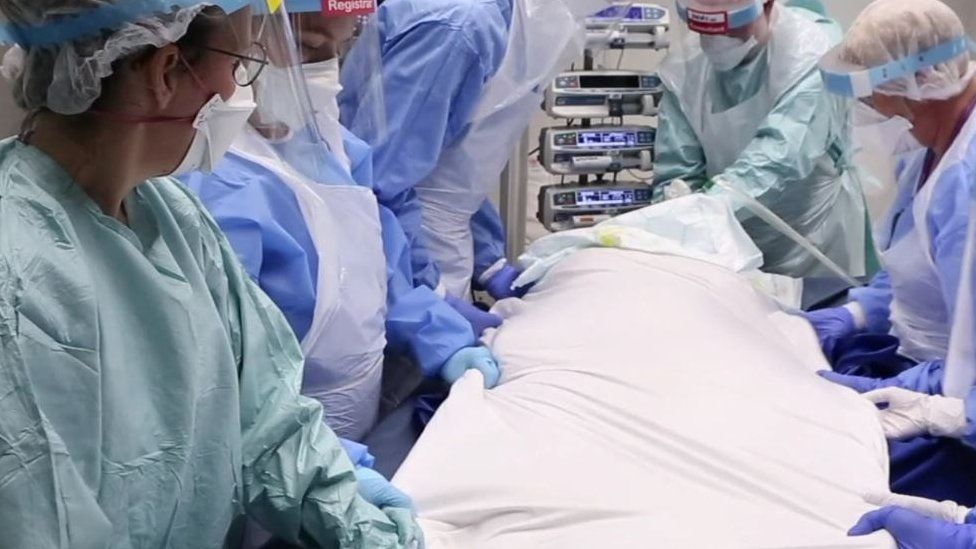
According to Dr Gardiner, chronic staff shortages meant specialist staff could not be spread across the Belfast Trust’s three separate hospital sites.
And one-to-one nursing care, the gold standard for ICU, was no longer possible.
Dr Gardiner said they were at “the very limit with what we can achieve”.
“My biggest fear is that we won’t be able to keep going with cancer surgery; that we will be overwhelmed with Covid admissions; with routine winter admissions and that we will have to stop routine cancer surgery.
“We do not want to be faced with having to ask or decide who is going to get their operation and who is not; who is going to get an ICU bed and who is not.”
‘Atmosphere almost oppressive’
In Covid ICU – the hospital’s “red zone” – the battle to save lives is constant.
It’s hideously bright, stiflingly hot and the cacophony of hissing ventilators, beeping alarms and buzzing machinery bombard the senses.
While the atmosphere is almost oppressive, each alert is a sign that the fight is not lost.
All patients are heavily sedated and hooked up to numerous pieces of medical equipment.
None are capable of speaking.
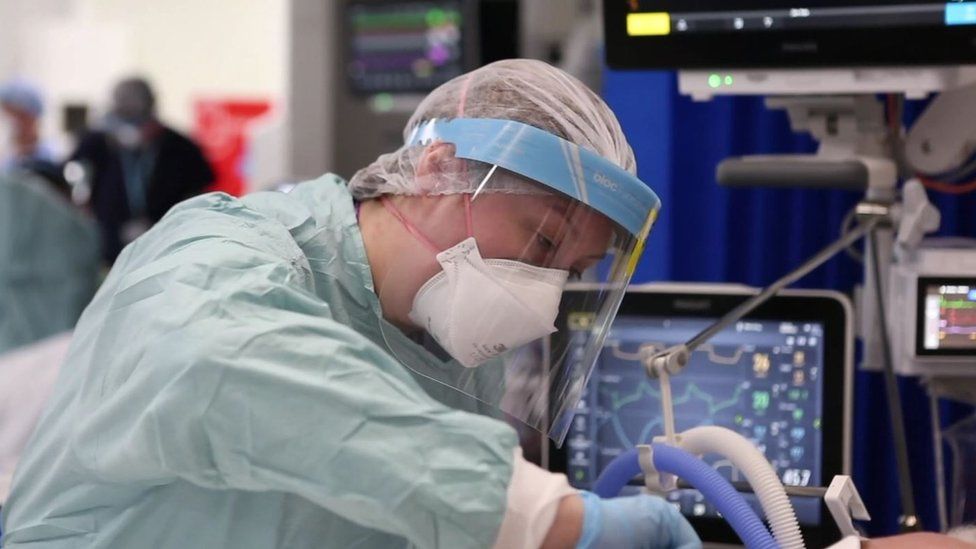
At one point, it took seven staff to prone [turn] a woman in her 60s.
“That helps us to improve the oxygen level,” explained consultant Martin Duffy.
“We have been doing it very frequently during the last 18 months.”
At other beds, physiotherapists pumped chests, moved feet or arms while nurses dabbed ice lollies around the mouths of patients.
Naomi Dalzell, a specialist respiratory ICU physio, said: “These patients are often ventilated for four, five or six weeks or even more than that.
“They lose a significant amount of muscle strength while they are here. We start the rehab as early as we can [but] there’s a long road ahead.”
Janette Ancon was among dozens who have been re-deployed to ICU, having usually worked as a nurse at Musgrave Park Hospital.
“It will be scary thinking ahead if the surge will go high again,” she said, “but we will just get through with it – we are here for each other.”
‘Burnout is immense’
The onslaught of another grueling winter was also at the forefront of Emma Cody’s mind.
She had just finished another challenging 12-hour nursing night shift and described the anxiety as “immense”.
“I don’t know how we are going to keep going at this level,” she said. “It’s not sustainable. The burnout is immense.
“Everybody hits a breaking point and a lot of people have, and a lot of people will, still hit that. It is a worry.”
Meanwhile, in a high-dependency unit, cancer patient Michael McAliskey was grateful that the struggling system was still able to cope.
“I am in a lucky position where I got some treatment before I passed the point of no return,” he said.
Dr Gardiner has appealed for political unity on the contentious issue of transforming the health service.
“I don’t think there has been politics in the treatment of Covid or the way we have responded to it. Everyone has been behind that,” he said.
“But now we need to move on and accept that in order to get cancer surgery done, to treat Covid, to treat emergencies, to treat all the things that we are expected to treat we need political support.
“We need public co-operation in their behaviour, their actions and understanding of what we are actually up against.”





